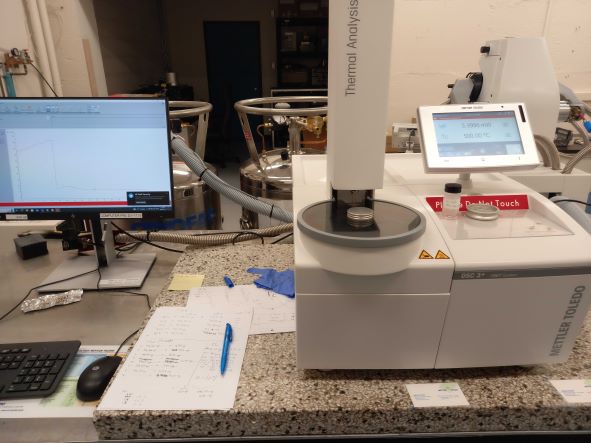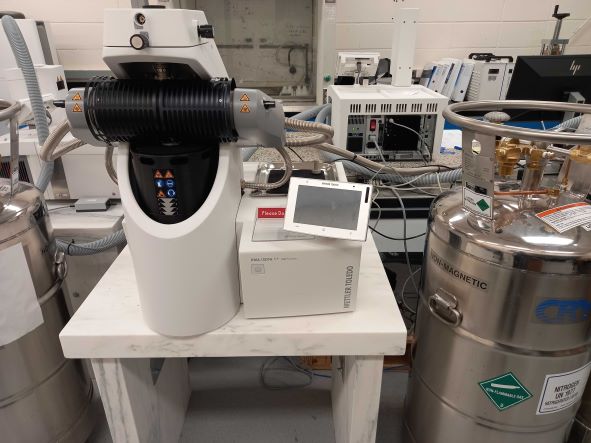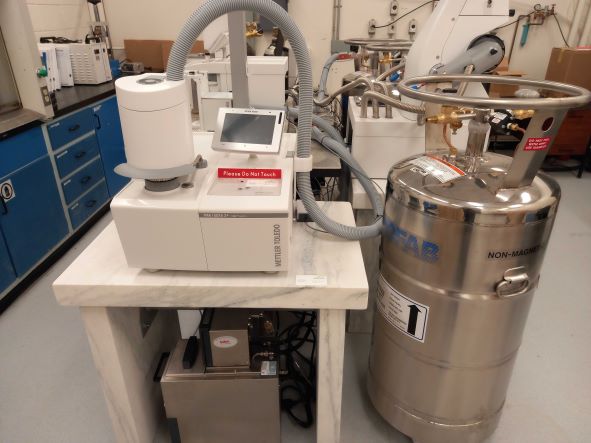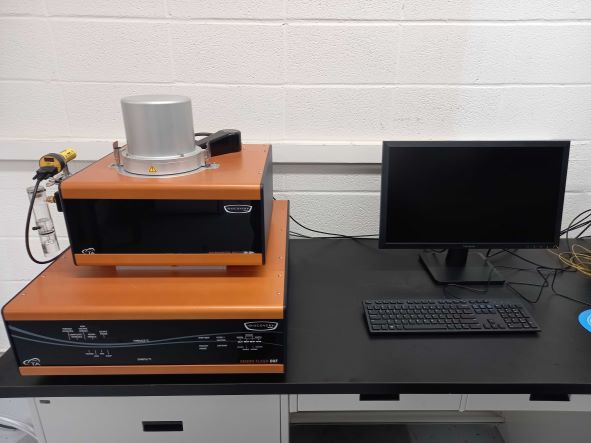DSC is a technique that allows to determine the thermal processes at play in a sample, including phase transitions, reaction kinetics, and many other properties. Our system can be run from -150°C up to 500°C, at rate of up to 300K/min (heating) or 50K/min (cooling). We can also perform modulated DSC analysis to separate kinetic from reversible processes.







